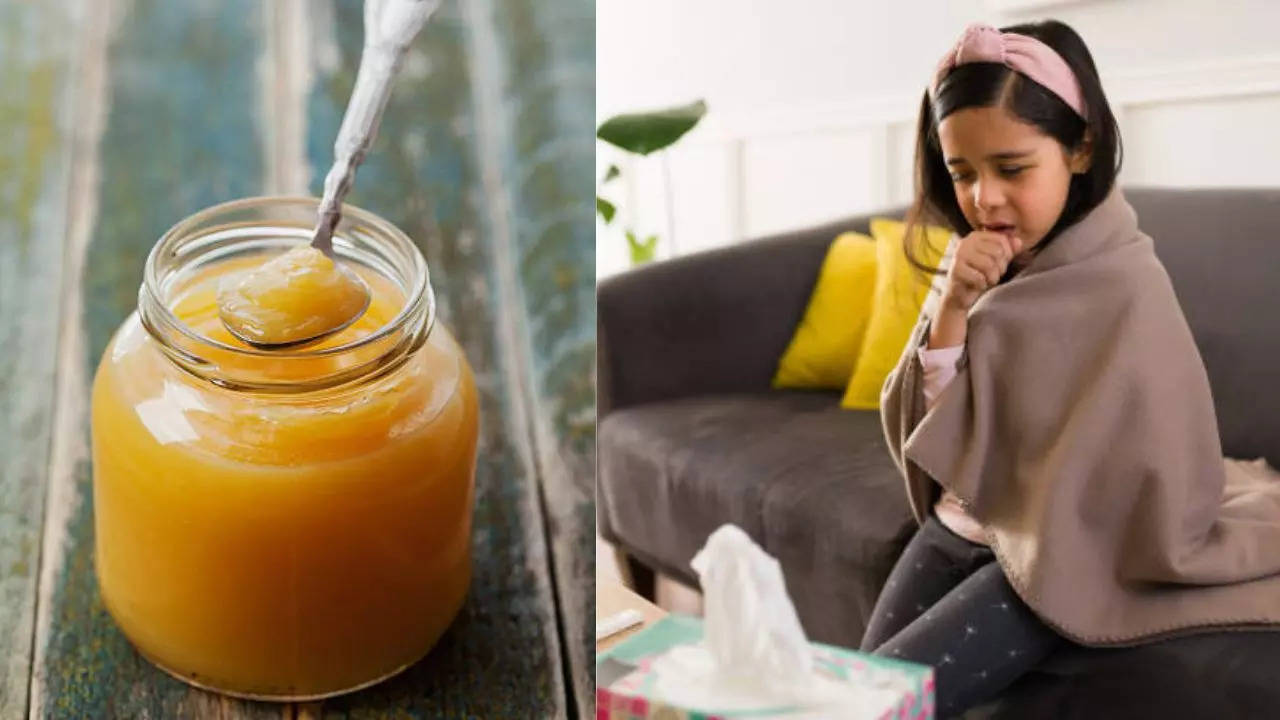Contents
Does applying ghee in the nose reduce allergies in children? No, it causes deadly lipoid pneumonia, experts sayWhat is lipoid pneumonia?,exogenous lipoid pneumoniaEndogenous Lipoid PneumoniaSigns and symptoms of lipoid pneumoniaWho is most at risk for lipoid pneumonia?How is lipoid pneumonia treated?
-
news
-
Health
Does applying ghee in the nose reduce allergies in children? No, it causes deadly lipoid pneumonia, experts say
According to experts, a popular method of applying ghee on the nose – which is believed to reduce allergy symptoms – can lead to dangerous diseases like lipid pneumonia. Lipoid pneumonia is a rare condition that occurs when fat particles enter the lungs. And cause inflammation. Read on to know more.

Ghee is made from whole milk and contains about 62 percent saturated fat.
It is a popular age-old belief that applying ghee to your nose can prevent weather-related cold and cough, respiratory ailments, allergies, chronic cough and rhinitis, among other ailments. According to the ancient medicinal system Ayurveda, ghee in your nose keeps infections and chronic diseases away. However, experts say that it can be dangerous for people suffering from allergies.
Dr. Cyriac AB PhillipsA renowned liver doctor has criticized a social media influencer who advocated applying warm ghee on the nose of children to get relief from infection.
“How does applying saturated fat in the form of clarified butter inside and outside the nose reduce allergic inflammation, a type 2 immune disorder traditionally characterized by high levels of immunoglobulin E?” Dr. Phillips wrote on
“Keep doing this until you get lipoid pneumonia,” he said in a response on social media.
Ghee is made from whole milk and contains about 62 percent saturated fat. Experts say saturated fat may increase LDL or bad cholesterol levels, which cause heart disease and stroke. The American Heart Association recommends that saturated fat should not exceed 5-6 percent of your daily calories.
What is lipoid pneumonia?,
Lipoid pneumonia is a rare condition that occurs when fat particles enter the lungs. Lipoids, also called lipids, are fat molecules that cause inflammation of the lungs. There are two types of lipoid pneumonia:
exogenous lipoid pneumonia
This happens when fat particles enter from outside your body and reach the lungs through the nose or mouth.
Endogenous Lipoid Pneumonia
In this type, also called cholesterol pneumonia, fat particles accumulate in the lungs, causing inflammation.
Signs and symptoms of lipoid pneumonia
Doctors say that the symptoms of lipoid pneumonia vary from person to person. While some have no symptoms, others experience mild symptoms. The symptoms of lipoid pneumonia worsen with time. In some cases, they can become serious or even life-threatening. Some common symptoms include:
- chest pain
- chronic cough
- difficulty breathing
- high fever
- coughing up blood
- weight loss
- night sweats
- difficulty swallowing
Who is most at risk for lipoid pneumonia?
Some risk factors for lipoid pneumonia include:
- Neuromuscular disorders that affect swallowing
- forced oil consumption
- People who suffer from gastroesophageal reflux disease
- sniffing oil based medicines
- faint
- oil pulling
- Psychiatry and mental health disorders
- Abnormalities of the throat or esophagus, including hernias and fistulas
- Oral ingestion and aspiration of mineral oil are used as laxatives
How is lipoid pneumonia treated?
Doctors say that the treatment of lipoid pneumonia depends on the type and cause of the condition as well as the severity of the symptoms. Lipoid pneumonia Eliminating exposure to fatty matter is often sufficient to improve symptoms. Your doctor may suggest using prescription anti-inflammatory medications, such as corticosteroids, to reduce the inflammation caused by lipoid pneumonia.
Other treatments include oxygen therapy and respiratory therapy, which make breathing easier for people with lipoid pneumonia.
Whole lung lavage may be used to reduce the symptoms of lipoid pneumonia caused by PAP. In this procedure, one of your lungs is filled with warm saline solution and then drained under anesthesia.
Get the latest news live on Times Now with breaking news and top headlines from around the world.


